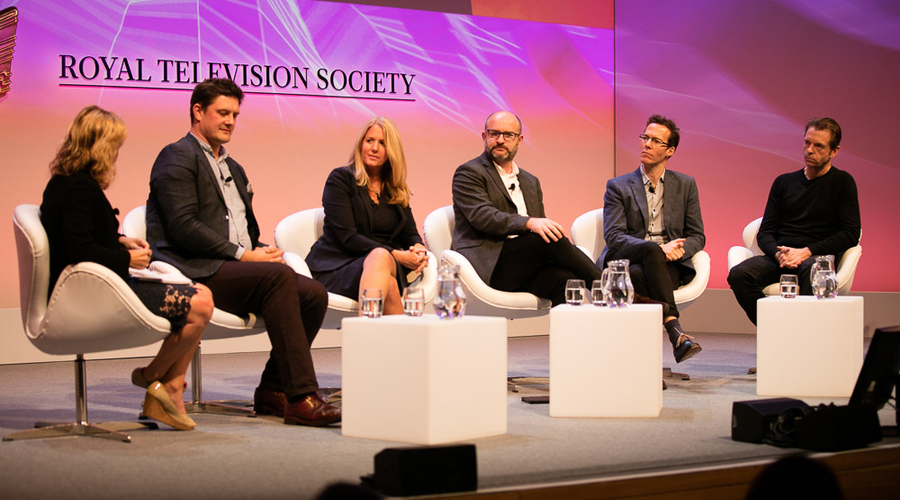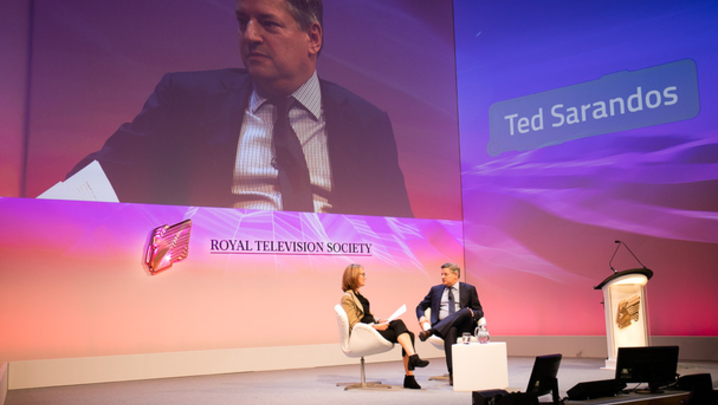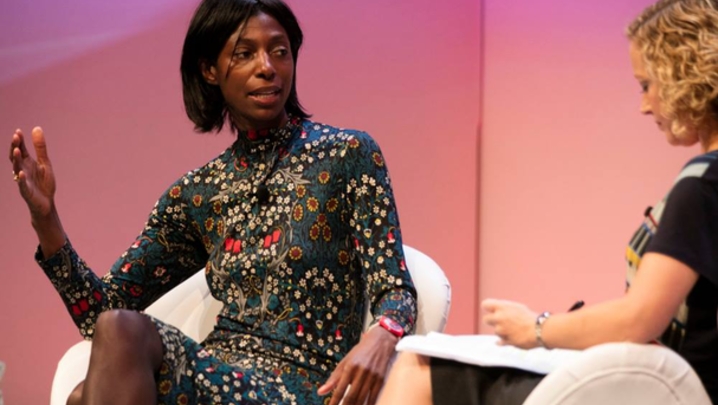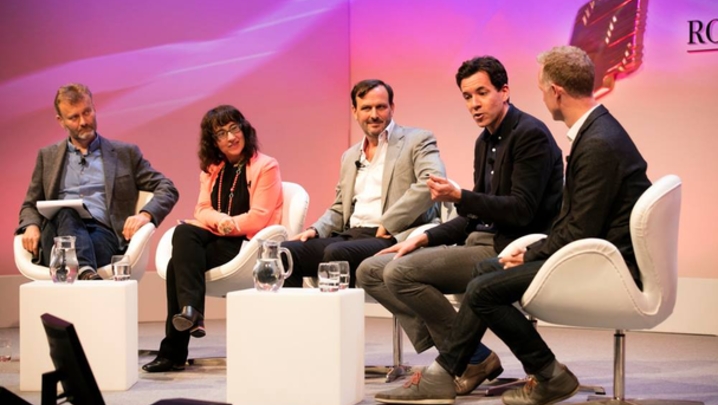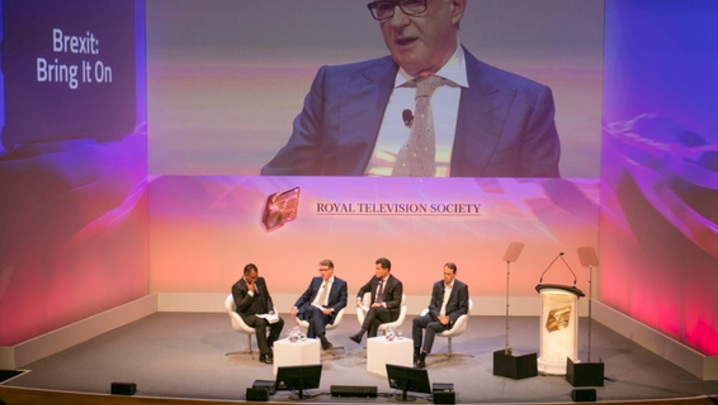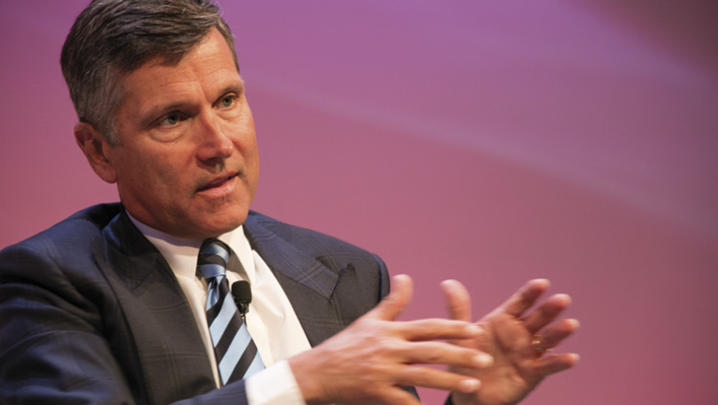Tara Conlan logs on as RTS panellists explain how to commission content in an always-on world
Defining success in a connected content world is not straightforward. Is the buzz on social media more important than overnight ratings? And how does one commission shows that will play equally effectively on all devices across all platforms?
Those were the main questions addressed in “Meet the new commissioners.” Session chair Jane Martinson, The Guardian’s head of media, asked some familiar faces with years of experience how the digital world is affecting their decisions.
Having premiered Vice’s new TV channel, Viceland, in the UK the previous week, the project’s SVP of international TV and video programming, Kevin Sutcliffe, was the ideal person to kick off.
Viceland’s first-night audience peak of 17,200 was not “too fine”, he admitted, but feedback had been “very positive”. It was early days and the company looked beyond Barb ratings data. “You can’t just pick out linear and go, ‘What’ve you done that for?’ Our success is about the brand and… about all Vice content on all screens all over the world.”
Sutcliffe said that he keeps in mind “the tone of voice and attitude that reaches out to 16- to 34-year-olds”. He argued that Viceland reflected this. “We know that,” he said, “because they tell us very quickly – we can see it online, what they think.”
Given that, two years ago, Vice’s CEO, Shane Smith, had said young people were “leaving TV in droves”, Martinson asked why Vice had launched a TV channel. Sutcliffe responded: “It’s all content on screens… we produce hundreds of thousands of hours of content each year…. I think people will come to that. This is one aspect of Vice’s content output and I think it’s going to be a strong offering.
“TV viewing’s extremely healthy,” he continued. “Downloading is very strong and healthy, [but] live viewing is changing.”
UKTV director of commissioning Richard Watsham, who oversees 10 channels, agreed. He was “trying to raise awareness and grow the reputation of a channel”, he said, and his shows needed to nail the appropriate tone of voice for their channel.
A change in strategy, involving the commissioning of more original shows, especially for Dave and Gold, had paid off. Over the past 12 months, seven of the top 10 shows across the network had been originals. UKTV was “now knocking the door of 10% of the commercial market impact of the UK”, he said.
To stand out in the catch-up world, he looked for shows that brought “a bit of PR heat.”
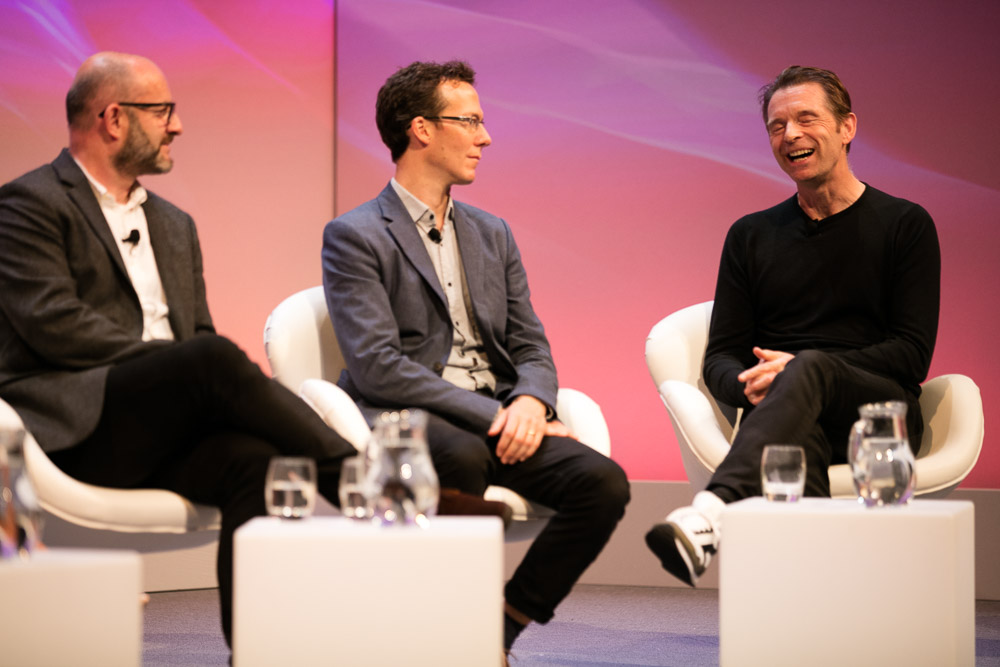
Although there had been a decision to “get rid of all the factual a few years ago”, to concentrate money “into the entertainment channels”, Watsham said that the network had doubled the number of genres it was operating in over the past year. He added that there had been a number of conversations with drama producers.
It was an idea being entertained by BT, too, according to BT TV and BT Sport Managing Director Delia Bushell. “I think, if you’re a pay-platform, you’re trying to create tent-pole, flagship moments across the year, where you’ve got something exclusive,” she said, which might be a new AMC drama
or co-producing some new dramas.
Asked by Martinson to expand, Bushell said: “We’re open to doing it. We’re looking at many different things. Definitely, we want a layer of exclusive content in what we do, and that could be across a number of different genres. But the strongest power is in sport and box sets.”
She added: “We focus a lot on delighting the customer…. When we, as a telco, invest in content, it’s helping to create an emotional engagement with our customers.”
Earlier in the day, Sky Vision Managing Director Jane Millichip had compared financing high-end drama to the US sub-prime mortgage market that helped spark financial meltdown in 2008. “How do you mitigate against that… high risk?” Martinson asked Sky Atlantic Director Zai Bennett.
Unveiling a teaser for a new Tim Roth drama, Tin Star, Bennett said: “I think it’s about ambition, the initial idea selection… and the execution of it.”
For Sky Atlantic, “cinematic qualities on television” were important in helping it to deliver value, as was “investing in creative people who can deliver amazing pieces of television and allowing them the space and freedom to do that”, said Bennett.
Global partnerships were critical in the new digital era, too. “We’ve got incredible partnership with HBO and Showtime, they’re very important to us. On top of that, we commission… four or five dramas a year, four comedies as well. It’s about finding the right thing.”
Defining success on BBC Three became a lot harder when the youth channel went online earlier this year. Some estimate that around 20% of its audience was lost.
However, controller Damian Kavanagh pointed out that its shows still broke through, such as the comedy Fleabag: “That’s what BBC Three is for, we’re there to back that kind of talent… and those types of ideas and get them on screen.”
The channel values how audiences respond on Twitter and Facebook as much as ratings. Short-form content, such as Things Not To Say To an Autistic Person, generated a lot of social-media traction. When 250,000 or so people shared content, it meant “you’ve done something right”, said Kavanagh.
BBC Three wanted to stand out for “quality” and “something that has public service value” in the short-form space, although “it is important that we reach a large segment of 16- to 34-year-olds”, he added.
Did executives have to think about commissioning for different devices? wondered Martinson.
Kavanagh ordered “stuff especially for specific social platforms and you have to be careful how you approach that… because it’s got a different purpose”.
Currently, BT commissions only sports shows, but Bushell pointed to the success of BT’s app, which allows multichannel angles and interactive timelines.
Bennett said his content was “device-agnostic”, adding: “We give customers the content they want and they can choose how to consume it.”
Meanwhile, Watsham said that the growth of UKTV Player (up 400% in terms of downloads on last year) meant he was looking at commissioning bespoke content for the platform.
Speaking from the floor, former BBC One controller Lorraine Heggessey asked the panel how success could be measured in the diverged digital world and what was being done to find an industry standard.
Kavanagh said conversations were happening about it: “On BBC Three, we’re quite strict in terms of how we measure our social reach…. We only measure engaged reach. We’ve got to come up with a standard measurement, because there’s a lot of people using a lot of different measurements at the moment.”
Bushell said that it would be difficult to have a standardised measurement. BT had its own private data, which it consolidated with social-media clip data “to create a kind of cross-platform set of measurements, but that’s almost your business advantage of creating that kind of platform”.
The last word – and laugh – went to Bennett: “Could it be better? Absolutely. Should it be better? Yes, please. Will that be the end of it? No.”
The panellists were: Zai Bennett, Director, Sky Atlantic; Delia Bushell, Managing Director, BT TV and BT Sport; Damian Kavanagh, Controller, BBC Three; Kevin Sutcliffe, Senior Vice-President, TV and Video Programming International, Viceland; and Richard Watsham, Director of Commissioning, UKTV. The session was chaired by Jane Martinson, Head of Media, The Guardian, and produced by Zoe Clapp.

